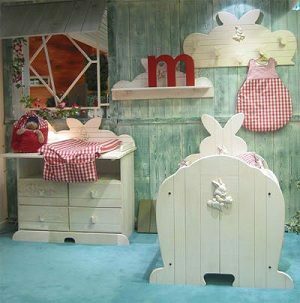Example of Grammar Categories
Spanish Classes / / July 04, 2021
Traditionally, they are known as grammatical categories to different classifications in which the words of the language are grouped according to the meaning they have, their grammatical function and the way in which they are structured, combined and modified.
In this traditional sense of what we understand by grammatical category, they are distinguished nine main categories, which are also known as word classes. These nine categories are: nouns, articles, adjectives, verbs, pronouns, prepositions, conjunctions, and interjections. Within these categories we can find subcategories or classes that specify certain more exclusive uses. For example, we can divide nouns into concrete, abstract, proper, common, simple, derived, compound, individual, and collective nouns.
It is also known as grammatical categories to the properties that can be expressed from inflectional morphemes in the words. In this sense, the term grammatical category refers to what type of information these morphemes contain; we can distinguish the categories gender, number and case.
The nine grammar categories in Spanish can be sort out in two:
- Variable classes. They are the grammatical categories that admit an inflection; that is, they can somehow modify their form according to different grammatical factors. In this category are the nouns, articles, adjectives, pronouns and verbs.
- Invariable classes. They are the grammatical categories that do not admit inflection; that is, they do not change despite the use that is given to them. They always stay the same. In this category are adverbs, prepositions, conjunctions and interjections.
The noun:
The noun is the grammatical category in which the type of words that are used to designate or name objects, people, animals, things and different types of entities are classified. Nouns can be classified into: concrete nouns (they name real entities), abstract (they name phenomena or qualities), common (they name generic entities), proper (they name particular entities), simple (nouns that do not derive from other words), derivatives (nouns that derive from other words), compound (nouns that are formed by the combination of two words), individual (they name a single entity) and collective (they name a set).
Some examples of nouns they are: pressure, house, friend, trophy, competition, humidity, happiness, noise, color, chair, wheel, suit, friendship, illness, condition, persecution, adversity, demolition, shooting.
Click for more information: Nouns.
Article:
The article is the grammatical category in which the words that determine the nouns are classified. The articles can express the gender (masculine or feminine) and the number (singular or plural) that corresponds to the noun. That is, there is an agreement between article and noun. For example: “the house”, “a lock”, “the coats”, “the uncertainty”.
Items can be sort out in determinate (el, la, lo, las, los) and indeterminate (one, one, ones, ones).
Click for more information: Articles.
The adjective:
The adjective is the grammatical category in which the class of words that are used to qualify nouns in different aspects are grouped. An adjective always accompanies a noun. They can appear before or after it. Adjectives are classified as qualifying (indicates qualities), possessive (indicates a relationship of possession), indefinite (indicates an indefinite amount), numerals (indicates a specific amount), interrogatives (expresses question in relation to a noun) and exclamatory (expresses exclamation in relation to a noun).
Some adjectives examples they are: white, funny, proud, warm, broken, polite, battered, uneven, loud, fast, slender, adequate, messy, hot, elevated, lost, some, true.
Click for more information: Adjectives.
The adverb:
Adverbs form the grammatical category in which those words that serve to modify a verb, an adjective or another adverb are classified. According to the information they express and add to the word to which they are modifying, adverbs can be classified into: adverbs of place (they indicate place or space), adverbs of time (indicate temporality), adverbs of manner (indicate mode or manner), adverbs of quantity (indicate a quantification), adverbs of doubt (express doubt or uncertainty), adverbs of affirmation (express an assent), adverbs of negation (express a negative), adverbs interrogatives (they express interrogation in relation to the word they modify) and exclamatory adverbs (they express exclamation in relation to the word they modify) modify).
Some adverbs examples are: very, much, little, no, never, always, never, yes, indeed, perhaps, probably, yesterday, today, tomorrow, while, during, after, before, here, there, behind, in front, on top, wrong, well.
Click for more information: Adverbs.
The pronoun:
The pronoun is the grammatical category that contains the words that have the function of replacing the name and that are used to refer to people, animals, things and beings, but without naming them in a way specific.
The pronouns can be classified into: personal pronouns (I, you, he, we, you, they, me, me, with me, you, you, with you, los, les), demonstrative pronouns (this, this, that, that, that, that, that), possessive pronouns (mine, yours, his, mine, yours, his) and relative pronouns (that, who, what, how much, how much).
Click for more information: Pronouns.
The preposition:
Prepositions are a grammatical category whose function is to relate words; they are an invariable class of words, that is, they always remain in the same form. Each preposition is used to establish different meaning relationships between words.
The prepositions in Spanish are: a, ante, bajo, con, contra, de, desde, en, entre, towards, until, para, por, according, without, so, sobre, tras.
Click for more information: Prepositions.
The verb:
Verbs are the grammatical category in which the words that actions or processes carried out by a person, animal, thing or any entity are grouped.
Within the verbs we find a classification called verboids or non-personal forms of the verb. Verbs that are not in a conjugated form and therefore do not vary their form in relation to a person are classified here. These forms are invariable, since they have specific endings. Verboids are infinitive verbs (ending in –ar, -er, -ir), participles (ending in –ado, -ido, -to, -so, -cho) and gerunds (ending in –ando, - going).
Some Examples of verbs they are: go out, find, produce, memorize, personalize, learn, destroy, figure, smell, take, humanize, direct, tell, see, go, swim, cook, turn, formalize, command, pilot.
Click for more information: Verbs.
Conjunctions:
Conjunctions are a grammatical category within which are grouped those words that serve as a link that joins or relates words or sentences. Conjunctions do not have a meaning by themselves; its function is to establish different types of relationships.
Conjunctions are classified into copulative (y, e, ni, que), disjunctive (o, u), adversative (more, but, although, however), explanatory (that is, that is), consecutive (later, so).
Click for more information: Conjunctions.
The interjections:
Interjections are a grammatical class that is composed of invariable words (that do not change their form) and that are used to express exclamations; They are used to express feelings, to attract the attention of the interlocutor or to express emotions or impressions. Interjections are always written between exclamation marks (!). Interjections can be made up of verbs, nouns, adverbs or adjectives that are used by themselves or in combination for this purpose.
Some examples of interjections They are: Eh! Ah! Wow! Wow! Oh! Hey! Help! Help! Bravo! Ugh! Uy! Hey!
- Me (adjective) best (adjective) friend (noun) It was (verb) from (preposition) holidays (noun) to (preposition) USA (Noun).
- Oh! (interjection) I (pronoun) hurt (verb) the (Article) finger (noun) when (conjunction) i opened (verb) the (Article) bottle (noun).
- The (Article) boat (noun) set sail (verb) for (preposition) the (Article) morning (noun) with (preposition) direction (noun) to the (a: preposition; Article) North (noun).
- Everyone (adjective) the (Article) guests (noun) they arrived (verb) late (adverb) to (pronoun) the (Article) party (noun).
- Mario (noun) He had (verb) a (Article) nightmare (noun) the (Article) other (adjective) day (noun).
- The (Article) school (noun) I know (pronoun) inaugurated (verb) the (Article) year (noun) past (adjective).
- Not (adverb) I (pronoun) like (verb) the (Article) food (noun) candy (adjective) neither (conjunction) either (adverb) the (Article) food (noun) very (adverb) seasoned (adjective).
- ¡Oh! (interjection) That (adjective) movie (noun) he was (verb) very (adverb) interesting (adverb).
- The (Article) teacher (noun) He decided (verb) put on (verb) to (preposition) to work (verb) on (preposition) equipment (noun).
- The (Article) match (noun) from (preposition) soccer (noun) he was (verb) very (adverb) hard-fought (adverb).
- The (Article) kids (noun) they played (verb) to (preposition) the (Article) hidden (noun) on (preposition) the (Article) Park (noun).
- The (Article) exercise (noun) physical (adjective) Y (conjunction) the (Article) good (adjective) feeding (noun) They are (verb) indispensable (adverb) in order to (preposition) keep (verb) a (Article) lifetime (noun) healthy (adjective).
- You (pronoun) they offered (verb) to (preposition) me (adjective) sister (noun) a (Article) new (adjective) job (noun).
- Me (adjective) cousin (noun) small (adjective) I buy (verb) sweet (noun) Y (conjunction) drinks (noun) on (preposition) the (Article) store (noun).
- Ana (noun) competition (verb) on (preposition) a (Article) competition (noun) from (preposition) dance (noun) Y (conjunction) got (verb) the (Article) first (adjective) place (noun).
- In order to (preposition) to know (verb) to win (verb) there are (verb) what (conjunction) to know (verb) to lose (verb).
- ¿What (adverb) It was (verb) it (pronoun) what (conjunction) I (pronoun) said (verb)?
- ¿Which (adjective) day (noun) from (preposition) the (Article) week (noun) do you have (verb) free (adverb) in order to (preposition) to go (verb) to (preposition) drink (verb) a (Article) coffee (noun)?
- The (Article) month (noun) past (adjective) got (verb) a (Article) increase (noun) on (preposition) me (adjective) job (noun).
- The (Article) tigers (noun) They are (verb) animals (noun) carnivores (adjective) what (conjunction) consume (verb) a (Article) great (adjective) amount (noun) from (preposition) kilos (noun) from (preposition) meat (noun) to the (a: preposition; Article) day (noun).
NEW EXAMPLE.COM WORD SEARCHER!
Find the grammatical category of a word among more than 200,000 examples.



